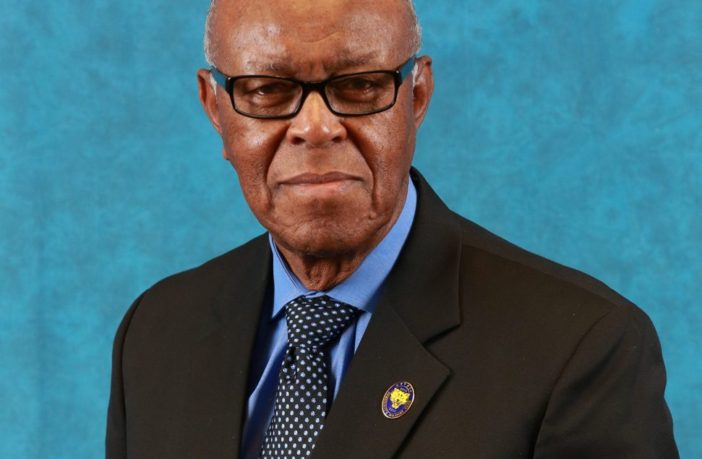Dr. Isaac J. Crumbly (Photo courtesy BlackPressUSA)
By Stacy M. Brown, NNPA Newswire Senior National Correspondent
@StacyBrownMedia
Located deep in the heart of Georgia, about 90 miles south of Atlanta, stands Fort Valley State University, one of America’s Historically Black Colleges and Universities (HBCUs).
Nowhere is the university’s motto, “Empower the Possible,” underscored better than its Cooperative Development Energy Program (CDEP).
Launched 34 years ago by Dr. Isaac J. Crumbly, CDEP offers minorities and women the opportunity to pursue dual degrees in STEM disciplines.
Fort Valley State University (FVSU) students join the dual-degree program for three years; then transfer to a partner institution to study engineering, geosciences, or health physics.
In five years, graduates earn two bachelor’s degrees — one from FVSU, another from the partner school.
According to the United Negro College Fund, the increasing number of African Americans studying and working in science, technology, engineering, and math (STEM) fields is revolutionary.
Largely due to the efforts of the country’s HBCUs, African Americans are entering their STEM degrees better equipped to thrive in college, to graduate and to find successful careers, the UNCF reported.
Through CDEP, Fort Valley State University students have participated in over 850 internships with the public and private sectors of the energy industry, gained over 320,000 hours of hands-on work experience, and earned over $4.5 million to help finance their education.
Since 1992, CDEP has awarded over $13 million in scholarships to academically talented minority and female students.
In collaboration with its partnering universities, FVSU-CDEP has awarded more than 360 STEM degrees.
Tomieka Searcy, a senior geologist at BP; Jerome Murphy, a senior geologist at Exxon-Mobile; Eric McIntyre, an engineering supervisor at Georgia Power Company; and Roccio Castilla, a geo-scientist at Exxon-Mobile, count among the success stories of the CDEP program.
“The CDEP program can bring a kid in the ninth grade in and get them through high school, get them through five years of college, three at FVSU, and a partner university, and deliver them into a job,” Dr. Crumbly remarked.
“That type of pipeline program generally don’t exist. This program delivers.”
Dr. Crumbly has earned national recognition for his creativity of introducing innovative programs and has received numerous awards which include recognition by two presidents: A letter of commendation from President Ronald Reagan in 1988 for exemplary achievements as an educator, researcher, and role model. In January of 2011, he received President Barack Obama’s Presidential Award for Excellence in Science, Mathematics, and Engineering Mentoring.
Through Dr. Crumbly’s relentless and tireless work, and because of CDEP, Fort Valley State University has ranked number one in the nation in graduating African Americans in Mathematics and Statistics in 2011, 2014, and 2015.
FVSU-CDEP has recruited and graduated 154 mathematicians, 54 chemists, and 24 biologists.
Dr. Crumbly’s vision has prepared many CDEP scholars to pursue careers as engineers and scientists working in industry and governmental agencies.
The students are creating a human resources pool that addresses diversity in America’s STEM workforce, Dr. Crumbly stated.
They enroll in dual degree programs in engineering, geology, geophysics, and health physics.
Academically talented students enroll at FVSU for the first three years and pursue a major in mathematics, chemistry, or biology.
For years 4 and 5, students transfer to one of CDEP’s partnering universities to complete a major in engineering, geology, geophysics, or health physics.
After the five-year program, students earn a BS degree from Fort Valley State University and a BS, MS, or Ph.D. from one of CDEP’s partnering universities.
In addition to FVSU, CDEP’s current partnering institutions include the Georgia Institute of Technology, Pennsylvania State University, University of Arkansas, the University of Nevada at Las Vegas, and the University of Texas at Austin.
Dr. Crumbly did note that there remains at least a couple of challenges facing the program and students.
“It’s not easy,” Dr. Crumbly stressed.
“We are an HBCU, and at HBCUs we don’t have endowments like other institutions. We do need to establish long-term funding from donors.”
However, Dr. Crumbly remains committed.
“My encouragement comes from looking at these kids and trying to get them into careers regardless of obstacles,” he said. “The CDEP program works. This model works. The only things we need are funding for the program and commitments from the industry.”
To learn more about the program or to contribute to CDEP program you can click on https://www.fvsu.edu/contact-cdep/ or call (478) 825-6243.



